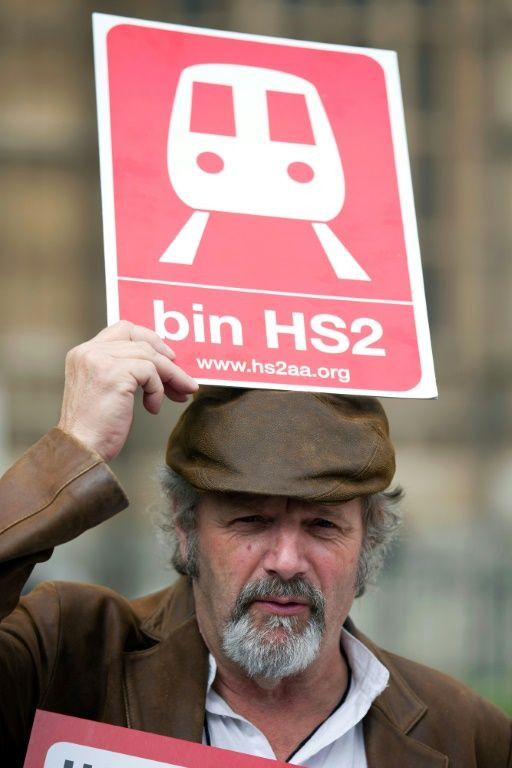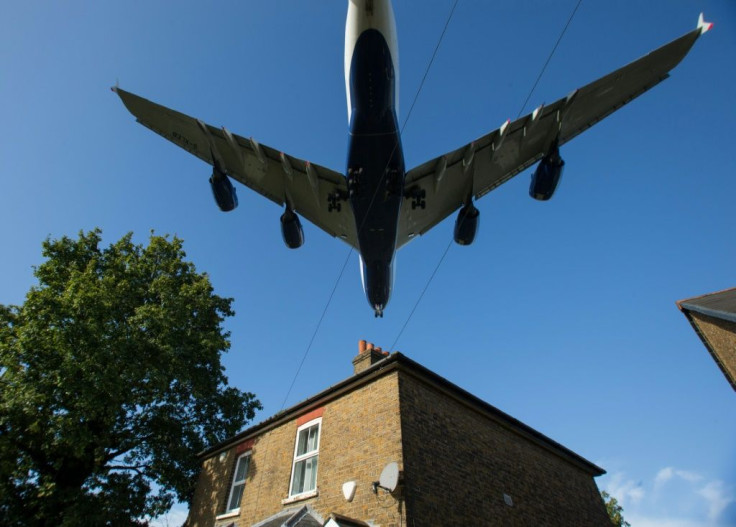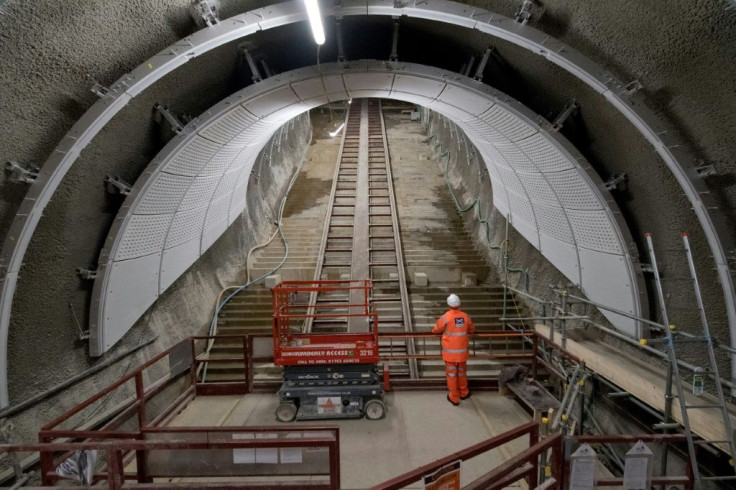Planes, Trains And Bills: Britain's Big Projects Dilemma

A high-speed train that won't start. An overcrowded airport that can't expand. A new subway line that never runs.
Britain's attempts to revive its creaking infrastructure are turning into a headache for Prime Minister Boris Johnson just as his fight with Europe over Brexit winds down.
Mega-spending on delayed, unpopular and controversial projects will be very much the focus when finance minister Sajid Javid unveils his new budget on March 11.
Javid's promise of an "infrastructure revolution" chimes with Johnson's hopes of securing the future votes of Britons from poorer northern regions who switched sides and helped his Conservative party win last month's election.
Many parts of Briton look on richer London with tinges of anger and envy at its concentration of government spending and wealth.
But Johnson's vision will be tested by an uneasy business climate and threats of economic stagnation caused by the country's divorce from the EU.
Here is a look at some of the projects that Johnson will have to tackle after Brexit.
The long-suffering High Speed 2 was meant to create London's first new rail link to the north of the England in 150 years.

Designed to run to the former industrial powerhouse Birmingham and then Manchester and Leeds, HS2 was supposed to follow on from London's southern Eurostar connection with Paris.
But it has done little but accrue costs since first being formally proposed more than a decade ago.
Projected to cost ?55 billion in 2015 ($72 billion, 65 billion euros at current exchange rates), HS2's full price is now on course to double before the first train runs in 2029.
Critics doubt it will be completed on schedule, with the opposition Labour Party suggesting in a study that the first train will not reach Leeds until 2040.
Johnson last year said it might be wiser -- and a lot cheaper -- to simply run the trains between Manchester and Leeds instead.
Others back scrapping the entire project and investing the money instead in upgrades to existing regional links.

As in many other European countries, most British trains run from the capital to specific cities, making travel between the regions difficult, expensive and slow.
The Tube, London's ancient, cherished and increasingly overcrowded subway system, was supposed to have a new line zipping through in 2018.
Few now expect the first doors to open until the end of 2021 at the earliest, with accompanying costs growing from ?14.8 billion to more than ?18 billion.
What was once proudly billed as Europe's biggest construction project is turning into a waste for Londoners who purchased homes around future train stops, hoping for easy commutes.
Stores and restaurants around the various construction sites complain of lost business, and the project's chairman resigned under pressure in 2018.
London's transport authorities believe they have lost up to ?750 million in passenger revenue because of the delays.
Europe's busiest airport has turned into the scene of a battle of wills between environmental campaigners and Heathrow authorities who want a third runway built.
Heathrow aims to grow annual passenger traffic from the current 78 million to 130 million.
Local residents and clean climate lobbies have all decried the expansion, while Johnson promised to "lie down in front of those bulldozers and stop the construction" when he was still London mayor in 2015.
His predecessor Theresa May's government approved the new runway in June 2018 but Johnson expressed "doubts" about it last month.
His spokesman said Tuesday that Javid's budget will make "tough decisions" and root out "anything that is not aligned with the government's priorities".
It was unclear is he was referring to Heathrow or HS2.
© Copyright AFP 2024. All rights reserved.





















